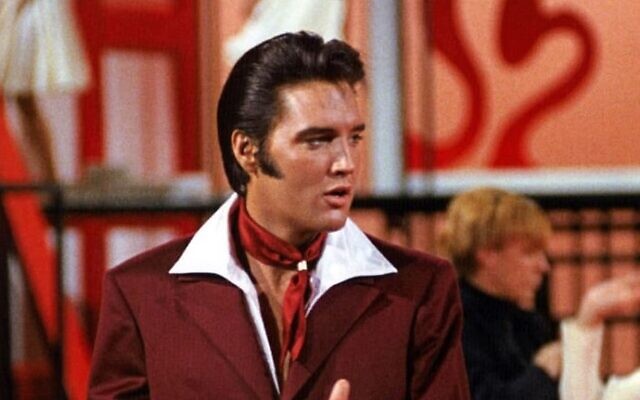YIR: Elvis’ 1968 Comeback Had High Holidays Message
The special carried an important, but appropriate, message for the Jewish season of renewal.

The streamer service Paramount+ debuted a new documentary about Elvis Presley, “Reinventing Elvis, the ’68 Comeback Special,” just before this year’s High Holidays.
The online service probably didn’t think the production was anything more than a nostalgic look back to an important turning point in the career of the legendary performer. But, examined more closely it carried an important, but appropriate, message for the Jewish season of renewal.
The documentary, which told the story of how Presley, who had a great-grandmother who was a Jewish immigrant from Lithuania, agreed to do a winter holiday special for NBC. The story was a tale of second chances for the singer, whose career and popularity were in real trouble. Presley had spent much of the previous decade in a string of forgettable movie roles with largely forgettable music soundtracks. Their lackluster success had called into question whether Presley could still excite audiences as he had done when he first appeared on TV in the 1950s.
The director of the 1968 project, Steve Binder, producer, Bob Finkel, and music director Billy Goldenberg put together a program that was designed to show off Presley’s still considerable musical talents but with a renewed emphasis on his charismatic ability to move audiences. They managed to sell the concept to the network NBC, which was gambling, what amounted to over $11 million in 2023 dollars and to the sponsor, Singer sewing machines. They had even managed to outfox Presley manager Tom Parker, who thought Presley was doing a show filled with holiday music standards. But when it came time for Presley to walk out on stage, he balked. At the last minute, Binder, who was largely responsible for putting the production together, was forced to confront Presley in his dressing room.
The singer was fearful of resuming his career on television, with its direct appeal to a massive nationwide audience. In the string of over 30 movies in the 1960s, there was none of the risk and challenge that a national television audience now offered. He sat in his dressing room, as Binder relates, paralyzed with fear. Eventually, Presley relented, and he went on stage, still unsure of whether he still had the magic that could bring the show to life.
As it turned out, once he began singing, he slipped easily into the stage persona that had helped to revolutionize popular music. The performance was capped by an electrifying performance of a tune written especially for the show, “If I Can Dream,” which was inspired by the many tragic events of 1968. Presley had conquered his fears and in the true spirit of the Jewish holy days, renewed himself.
The show, with an important assist from its Jewish American production team, was seen by the largest audience of the 1968 television season. The success of the production led directly to seven years of Presley’s performances in Las Vegas at more than 600 shows. It redefined him as an entertainer and the style his shows inspired had a lot to do with remaking Las Vegas as a show business mecca.



comments